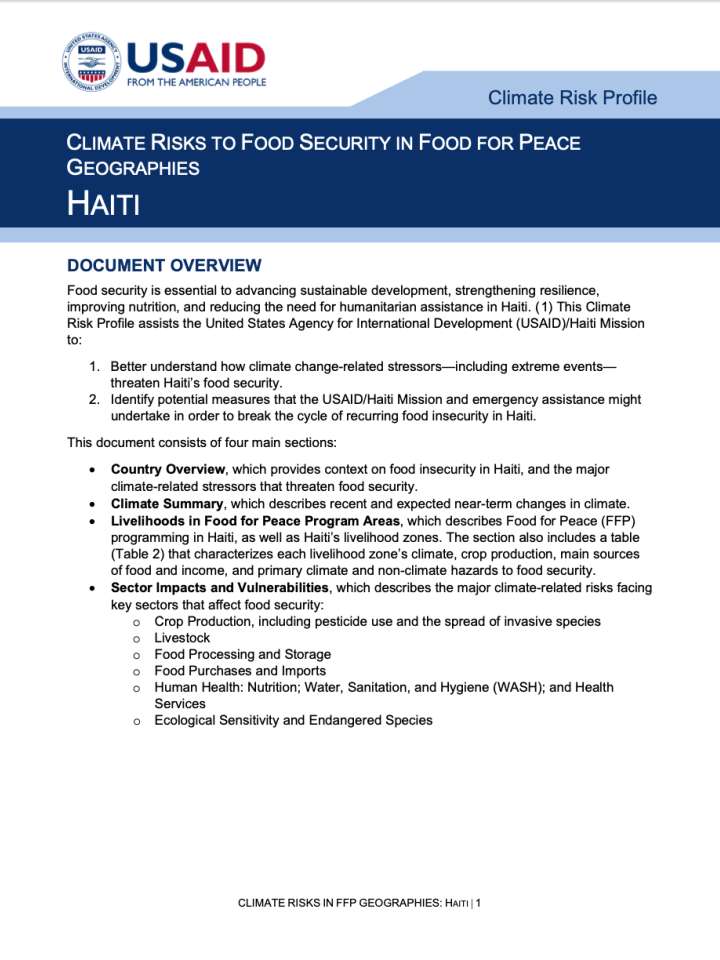Climate risks in food for peace geographies: Haiti (2020)
This profile provides an overview of climate risks to key sectors that impact food security in Haiti: crop production, livestock, invasive species, food processing and storage, food purchases and imports, human health (including nutrition; water, sanitation and hygiene or WASH; and health services), and ecological sensitivity and endangered species. The document describes historical trends and projected near-term changes in climate, livelihood zones in FFP geographies, climate risks to the key food security-related sectors within the FFP geographies, and potential adaptation measures for managing these risks.
The paper finds that Haiti is one of the most food-insecure countries in the world: more than half of the population is food insecure. Haiti experiences structural food insecurity, driven by widespread poverty and environmental degradation, and exacerbated by frequent natural disasters. Climate change is beginning to drive more extreme drought and flood conditions, and more intense hurricanes, and is contributing to increased salinization of coastal aquifers and estuaries, all of which are expected to continue to compromise food security. Climate change is also expected to exacerbate current climate impacts on health and water, sanitation, and hygiene (WASH) infrastructure and services, which are already in poor condition, further driving malnutrition and poor health.
Explore further
